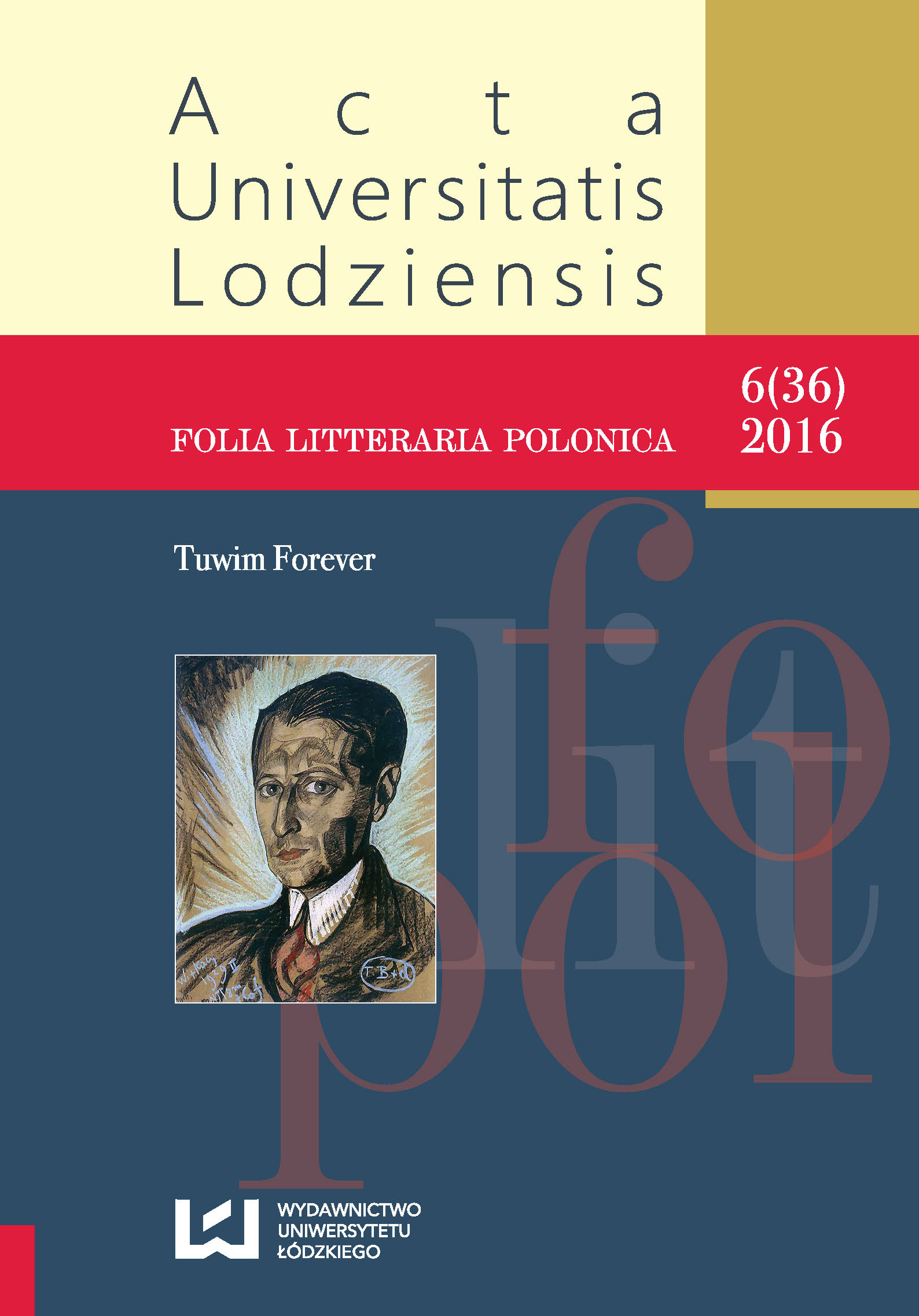Between Homeland and Emigration. Tuwim’s Struggle for Identity
Between Homeland and Emigration. Tuwim’s Struggle for Identity
Author(s): Hans-Christian TrepteSubject(s): Jewish studies, Recent History (1900 till today), Polish Literature, Western Slavic Languages, History of the Holocaust, Politics and Identity
Published by: Wydawnictwo Uniwersytetu Łódzkiego
Keywords: Julian Tuwim; Jewish-Polish identity; Polonität; exile; language;
Summary/Abstract: Julian Tuwim belongs to the pantheon of the greatest Polish writes of the 20th century. His Polish-Jewish descent, his attitude towards the Polish language, towards Jews in Poland, his political activities as an emigrant as well as his controversial involvement with the communist Poland still fuel many critical discussions. Polish language and culture were for him much more important than the categories of nation or state. However, whereas for Polish nationalists and antisemites Tuwim remained “only” a Jew, Jewish nationalists considered him a traitor. It was in exile that his attitude towards his Jewish countrymen began to change, especially after he learnt about the horror of the Holocaust in occupied Poland. Thus, he began writing his famous, dramatic manifesto, We, the Polish Jews. After World War II, Tuwim came back to Poland, hoping to continue his prewar career as a celebrated poet. His manifold contributions to the development of the Polish language and literature, within the country and abroad, cannot be questioned, and the dilemmas concerning his cultural and ethnic identity only make him a more interesting writer. Julian Tuwim belongs to the pantheon of the greatest Polish writes of the 20th century. His Polish-Jewish descent, his attitude towards the Polish language, towards Jews in Poland, his political activities as an emigrant as well as his controversial involvement with the communist Poland still fuel many critical discussions. Polish language and culture were for him much more important than the categories of nation or state. However, whereas for Polish nationalists and antisemites Tuwim remained “only” a Jew, Jewish nationalists considered him a traitor. It was in exile that his attitude towards his Jewish countrymen began to change, especially after he learnt about the horror of the Holocaust in occupied Poland. Thus, he began writing his famous, dramatic manifesto, We, the Polish Jews. After World War II, Tuwim came back to Poland, hoping to continue his prewar career as a celebrated poet. His manifold contributions to the development of the Polish language and literature, within the country and abroad, cannot be questioned, and the dilemmas concerning his cultural and ethnic identity only make him a more interesting writer.
Journal: Acta Universitatis Lodziensis. Folia Litteraria Polonica
- Issue Year: 36/2016
- Issue No: 6
- Page Range: 35-47
- Page Count: 13
- Language: English

